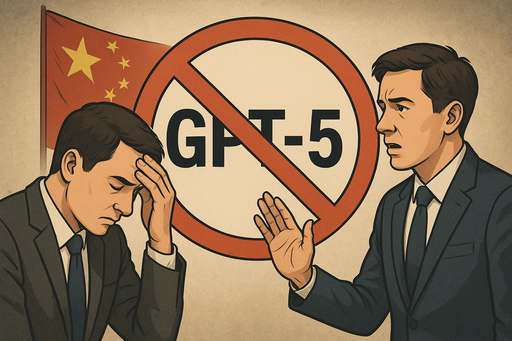OpenAI has encountered serious difficulties in attempting to register the GPT-5 trademark in China. The company cannot obtain exclusive rights to use this name in one of the world's largest technology markets.

G. Ostrov
American company OpenAI, developer of the popular ChatGPT chatbot, has faced unexpected obstacles in the Chinese market. Attempts to register the GPT-5 trademark in the Middle Kingdom have met serious resistance from local authorities and competitors.
The Core Issue
The main difficulty lies in the fact that Chinese companies and individuals have already filed applications to register the GPT-5 trademark, getting ahead of OpenAI. China's intellectual property system operates on a "first-to-file" principle, which means priority goes to whoever applied to the patent office first.
Consequences for OpenAI
The lack of trademark rights for GPT-5 in China could significantly limit OpenAI's opportunities to promote its products in this crucial market. The company risks facing legal problems when attempting to use the GPT-5 name for its services in China.
China's AI Market
China is one of the largest and most promising markets in the field of artificial intelligence. Local companies such as Baidu, Alibaba, and Tencent are actively developing their own AI solutions and striving to protect their positions from Western competitors.
Legal Aspects
The situation with the GPT-5 trademark demonstrates the complexities of international intellectual property law. OpenAI faces a lengthy legal battle ahead, the outcome of which could affect the company's strategy in the Asia-Pacific region.
More detailed information about OpenAI's activities can be found on the company's official website.
In case of any problems, contact us, we will help quickly and efficiently!




